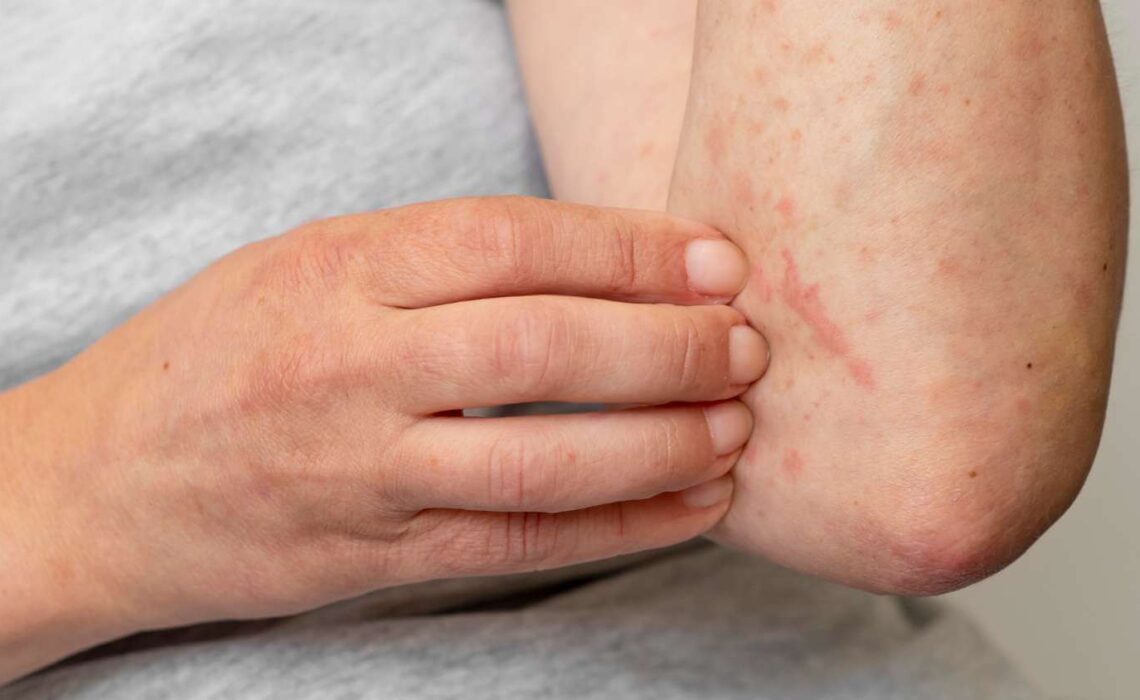Eczema is a skin condition, and it is so severe and irritating that it can cause the skin to turn red, get dry and become flaky. The itching may be bothersome and draining, especially when you have Eczema on eyelids, face, or other sensitive parts of the body.
When you have Eczema, it is essential to know what you should do to prevent an outbreak of the condition and treat flare-ups when they occur.
Things to do to prevent Eczema from flaring up
Table of Contents
- Things to do to prevent Eczema from flaring up
- 1. Keeping your skin moisturized
- 2. Exposing your skin to sunlight
- 3. Avoiding specific clothing that can irritate your skin
- 4. Using non-soap cleansers
- 5. Undergoing allergy testing
- 6. Doing your laundry with baby wipes
- 7. Using cool compresses
- 8. Using moisturizing soaps
- 9. Avoiding hot showers or baths
- 10. Minimizing stress
- What causes Eczema?
1. Keeping your skin moisturized
One of the most important things you should do to avoid Eczema from flaring up is to keep them moisturized at all times. You can use a lotion or cream after taking a bath to help lock in the moisture. It means that you should apply lotion for Eczema even when there aren’t any symptoms of the condition; it will help eliminate any eczema triggers.
2. Exposing your skin to sunlight

Image Source: everydayhealth.com
When you feel like Eczema is flaring up, it can be beneficial to expose your skin to natural or artificial light by sunbathing for about 30 minutes daily. It will help dry out the affected areas and work as an excellent moisturizer at the same time.
3. Avoiding specific clothing that can irritate your skin
You should avoid wearing tight clothes and underwear as they can irritate the affected areas and cause flare-ups of Eczema. Cotton is a much better choice as it will help keep you dry and reduce irritation to your skin.
4. Using non-soap cleansers
Eczema is a condition that affects the skin’s barrier. It means that it can cause your skin to become too dry and irritated, which will make it harder for any products you put on your skin to soak in. Using a non-soap cleanser will help keep your skin hydrated and free of irritants.
5. Undergoing allergy testing
Suppose you are experiencing any symptoms of Eczema. In that case, it is suggested that you undergo an allergy test to see if there are any substances or chemicals in your environment that may be causing the flare-ups.
6. Doing your laundry with baby wipes
When you do the laundry, it is recommended that you use baby wipes to clean off any dirt or chemicals that may be on the clothing. It will help minimize any triggers.
7. Using cool compresses
Soaking your skin in cold water, then using a clean towel to pat it dry can help reduce the itchiness of affected areas. You can use this method several times until the flare-up is gone.
8. Using moisturizing soaps
It is important to use moisturizing soaps when you are showering. It will help your skin retain moisture and reduce irritation.
9. Avoiding hot showers or baths
When your Eczema is flaring up, it is recommended that you avoid taking long or hot showers or baths as this will strip your skin of any moisture.
10. Minimizing stress
It is vital to reduce stress in your life when you are experiencing eczema flare-ups, as this can cause your skin to worsen or stay irritated for an extended time. You may want to try relaxation techniques, meditation exercises, or breathing exercises to help ease your tension and minimize your stress at all times.
What causes Eczema?
1. Allergy
Eczema may be caused by allergies that you have developed over time due to specific triggers in your environment, such as pollen, dust, or animal dander.
2. Inherited genes
If you have a family history of Eczema, you may also be more likely to develop the condition. You can find out if this is your case by asking your parents or other relatives about their experience with atopic dermatitis and what has caused it in their cases.
3. Low humidity
Low humidity in your environment can cause Eczema to flare up, and it is recommended that you keep the air moisturized with a humidifier when this is the case.
4. Dry skin
It will be easier for you to develop eczema if you have dry skin; people who have very oily skin may be less susceptible to the condition. You can keep your skin moisturized and healthy by drinking plenty of water and using non-soap cleansers when you cleanse your face or body after taking a shower.
5. Heat/cold/wind exposure
Specific weather patterns such as heat, cold, or wind exposure can irritate certain areas of your skin and cause Eczema to flare up in those areas. You should avoid going into the sun when it is too hot or too cold, and you should stay covered when there is a strong wind.
6. Stress
Suppose stress is a trigger for your Eczema. In that case, you may want to try meditation exercises or breathing exercises to manage your stress and prevent it from worsening your eczema flare-ups.
Final Notes
Eczema can be very irritating, but it is essential to remember that you are not alone in your condition. There are many alternatives to treating atopic dermatitis, and if you try out some of these methods discussed in this article, then you may find relief sooner than later!





No Comments